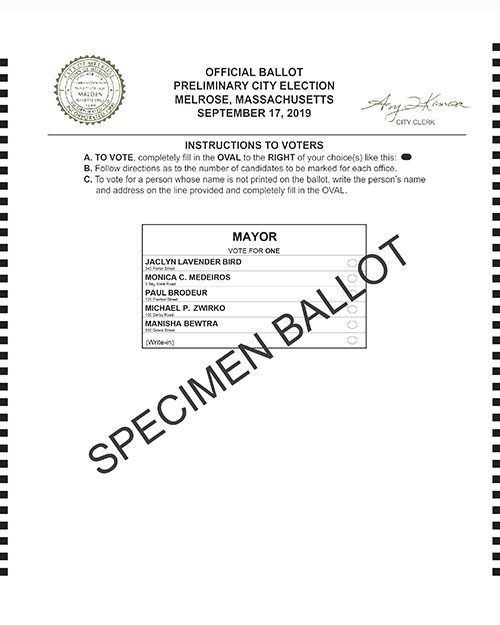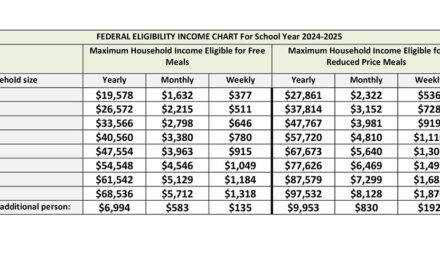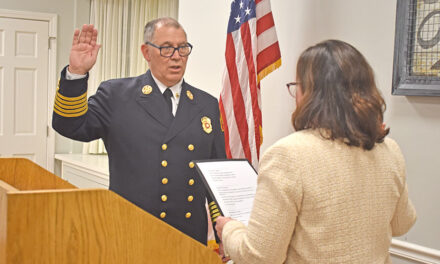Published September 13, 2019
MELROSE — Whether it be acknowledging income inequality, making the city work for every resident, focusing more intensely on education, reducing the high levels of public school student stress or improving communication on how municipal decisions are made, the five people who would be mayor each had a different take on the single most important issue facing Melrose during a debate last week.
Manisha Bewtra, Jackie Lavender Bird, Paul Brodeur, Monica Medeiros and Mike Zwirko were asked a variety of questions during the September 4 forum, which will continue to air regularly on MMTV until next Tuesday’s preliminary mayoral election. The top two vote-getters that day will move on to the general election set for November 5.
Asked for the most pressing issue facing the community, Zwirko answered education, calling it the most important service the city provides. He talked of the student-teacher relationship and how that relationship changes young people’s lives, and how it changed his own. Zwirko, currently an at-large alderman, called for “better outcomes” for students and explained, quite simply, that “If we don’t focus on education…we’re not going to move forward” as a desirable place to live.
 Bird, formerly an at-large alderman and a one-time director of Community Services for Mayor Gail Infurna, said she has seen first-hand the importance of communicating how decisions are made with the public. She mentioned the much-criticized moves by the School Department to get rid of environmental camp and the requirement that parents purchase Chromebooks not long after a $5.18 million override of Proposition 2 1/2 passed, with most of the money going towards educational needs. Bird also said the way city budgets are created should be more transparent as well.
Bird, formerly an at-large alderman and a one-time director of Community Services for Mayor Gail Infurna, said she has seen first-hand the importance of communicating how decisions are made with the public. She mentioned the much-criticized moves by the School Department to get rid of environmental camp and the requirement that parents purchase Chromebooks not long after a $5.18 million override of Proposition 2 1/2 passed, with most of the money going towards educational needs. Bird also said the way city budgets are created should be more transparent as well.
Brodeur, currently the city’s state representative in Boston, formerly a longtime alderman-at-large and father of two teenagers, said there is a high level of anxiety experienced by the city’s public school students, regardless of whether they are “super-talented” or struggling to get by. He said more school adjustment counselors are needed K-12 to “help our kids relax and enjoy day-to-day life while learning.”
Bewtra, currently an at-large alderman, said that she can handle the complexities involved in “making Melrose work for everyone,” whether they be senior citizens on fixed incomes or new residents with young kids. She said in order to do so will take an investment in the future and getting a handle on things like the changing climate, affordable housing and the local transportation system.
Medeiros, now an at-large alderman and formerly both a School Committee member and ward alderman, said that while the city has enjoyed tremendous growth and is often ranked as one of the most desirable zip codes in greater Boston, there is certainly an inequality in income among residents that the next mayor cannot ignore. She said that while many Melrosians have the luxury to make decisions like whether to buy “quartz or granite countertops,” others get to choose whether to purchase food or prescription drugs. It is critical that all residents “understand each other’s needs,” Medeiros said.
The candidates were asked how they plan to make Melrose a more affordable place to live.
Zwirko said one why to accomplish it is to adjust the city’s in-law apartment ordinance. He also explained that Melrose allows for multi-district housing and added that growth is occurring in the city’s once-underdeveloped neighborhoods. Zwirko said the administration of the next mayor and city planners need to take the rental community into consideration as well.
Medeiros said the city needs to better plan for its future, adding that she would have a five-year financial plan in place on the day she took over the mayor’s office that would allow Melrose “to better reach our goals” for schools, infrastructure improvements, public safety and to mitigate increases in water and sewer rates, since all residents pay water and sewer bills.
Bewtra explained that she wrote an affordable housing chapter of the city’s Master Plan and began her professional career by rehabbing vacant homes for affordable housing. She said as mayor she would have the city explore property tax relief, rent stabilization and the establishment of a Municipal Affordable Housing Trust, adding that Melrose needs to write a housing production plan which would help the city achieve its Chapter 40B housing quota.
Brodeur, saying that senior citizens “feel they’re not welcome here anymore,” said the most important thing is to create a property tax exemption that is income qualified and property value qualified. He talked of possible rental tax deductions and a desire to make the Affordable Trust Fund “more flexible” so more people can participate in it.
Bird, who has worked for nonprofits dealing with seniors and low-income families, said the city needs to take a “comprehensive look” at its tax relief program and involve all those who have a stake in it, with an eye towards not shifting the from those over 65 to those under 65.
The city’s critically-overworked Inspectional Services Department was the one most candidates wanted to see addressed now that there is some extra money in the city’s budget thanks to the passage of the Prop. 2 1/2 override last April.
Medeiros said that department — which, among many other things, issues building permits — brings revenue into the city but is overburdened and needs more personnel. She also would restructure the staff in the mayor’s office to increase constituent services and communication with the public. Some attention would be given to police staffing as well.
Bewtra explained that there needs to be a data and communications specialist in the mayor’s office who can, among other things, help make the annual budget more understandable. She said she would also address the Inspectional Services Department, as well as exploring the creation of an economic development post.
Brodeur said the city must plan strategically for how it allocates its resources and that he had no answer until that is done. For instance, he said he has heard a lot about education and traffic enforcement issues as he canvasses the city, but questioned whether another police officer should be added or a more proactive approach be taken towards addressing public safety needs, for instance.
Bird, who worked in Mayor Gail Infurna’s office during the successful campaign to pass an override of Proposition 2 1/2, said that without the extra money coming with that vote the candidates “would not be having this discussion” about adding any new municipal positions. She said police staffing would be a top priority, since it would help reduce hight overtime costs resulting from the need to cover shifts.
Zwirko said he would methodically review line items in the city’s budget but agreed that the Inspectional Service division needed help and more special needs specialists should be hired in the schools to keep more kids in the district, which saves money in the long run.
June’s catastrophic failure of an old sewer main on Brazil Street — which sent raw sewage bubbling up through toilets and sinks and into four homes’ living spaces — led the candidates to unite in a call for vastly improved city responses to emergencies.
Bewtra said first, her “heart goes out to” the affected families. She then explained that the city needs clear emergency management protocols so everyone involved knows how to handle a response immediately. She said compassion needs to be put above all else, in both the on-the-ground response and the on-going response, saying that was not the case in June and afterward.
Brodeur said the incident was “disastrous” for the people displaced and proved a stressful test to see how the city reacted to a crisis. “What if it was me? Would the city have my back?” Brodeur said others wondered. “We know there was a communication breakdown (but the fact of the matter was) that these people needed help and they didn’t get it.”
Calling the incident a “horrible situation,” Bird recounted how she was contacted after the mishap occurred and was the “sole point of contact” the families had in City Hall for about a week. She said she showed the victims empathy and worked to find housing for them. The Brazil Street episode, however, showed Bird how “weak” the city was at responding as a whole to an emergency. She vowed to make sure emergency management is a priority of hers if elected mayor.
Zwirko said when he heard of the ordeal, he immediately left work and went to the neighborhood to meet with those affected to best understand the impact on them. He quickly noticed a “failure in crisis response and compassion” from city departments. “Four families were displaced for over a month,” he said, calling that unacceptable.
Medeiros, who at one point called the city’s response to Brazil Street an embarrassment, said there is a “major communication problem” in the mayor’s office that needs to be fixed. She called for a clear set of policies to make sure everyone in the city is treated equally, a reference to an accusation that the city wasn’t as responsive because those impacted on Brazil Street were renters or immigrants. Medeiros suggested using part of the Sewer Department’s Rainy Day account to begin fixing city sewer mains.
The candidates were asked how a decision should be made about using the Beebe School, and what the best use is for the West Foster Street facility.
Brodeur said he has not made up his mind on the best use of the school, instead calling for a longterm master plan for the city’s schools. “Where do we want to be in 10 years in our district,” he asked, “and how can we best afford to do it?”
Bird said the Beebe presents an opportunity for “school-safe planning” but explained the community should go through an open, very public process to decide the best use for the school. She added there is now the chance to take a comprehensive look at all the buildings K-12, especially in light of the fact that the Veterans Memorial Middle School was built to house 900 kids and the currently K-4 classes have over 300 kids each.
Zwirko also said the Beebe presents a “tremendous opportunity” but added that careful analysis is needed because at every educational level there are built-in costs. “We know we need space,” he said, adding that this year’s kindergarten class has 338 students in it.
Medeiros agreed that a longterm plan to deal with the city’s enrollment needs is essential, saying the city can’t keep asking for overrides of Proposition 2 1/2 to house more students. “That’s doing it backwards,” she explained. She suggested exploring the idea of using the Beebe as an innovation school for science, technology, engineering and math, or for music and art.
Bewtra said the Beebe is limited in size and is in need of renovation. She called for a study of all city facilities, which would include bringing all stakeholders into the process, something Bewtra said she has much experience in.
The mayoral hopefuls were asked to prioritize major capital projects, and whether the city should consider tackling several at once. The biggest are significantly renovating the public library (total cost around $8 million, with about 50 percent funded by the state) and new, modern public safety headquarters.
Bird said that over the next 10 years, 75 percent of the city’s longterm debt will come off the books, clearing space for more borrowing. This, she said, would allow for a new library to be built. She also supported taking another look at the police and fire departments, and to take the opinions of the police and fire chiefs into account. Bird said a capital planning study is underway.
Zwirko was quite critical of the Infurna administration’s punting any new public safety building plan to the next mayor. The last plan to build a new combined facility, which was put together under Mayor Rob Dolan’s watch, would require a debt exclusion of Proposition 2 1/2.
Medeiros said cost and space were key determinants in whether a new public safety building gets done. She said the city needs to reconvene the Public Safety Building Committee and it is “vitally important that we’re honest with taxpayers.” She said addressing the fire station was a priority of hers.
Bewtra said she does not want to pit one building’s needs against another, adding she was glad to see the capital planning process starting again while urging that the public’s input be included.
Brodeur said the library and public safety projects could not be done at the same time because “they are at different levels of study.” He supported doing the library project because now is the time. There is state money available to help with the work, and “if we kick it down the road,” Brodeur said, the library will be in the same state as the public safety building are now.
The Department of Public Works, the city’s infrastructure needs and the search for a new permanent DPW director were also issues the candidates took turns at.
Zwirko said the DPW reaches the most people in the city, since it deals with sustainability, pipes, the schools, everything. He said it is vital that the city make a “dynamic hire” in the next public works director.
Medeiros said the city’s infrastructure “has been neglected for years” and the Melrose needs to be much more aggressive in improving it. She explained there is over $1 million in water and sewer reserves and suggested half that be used to start infrastructure improvements.
Bewtra talked about being committed to sustainability and equity in hiring, later explaining that data and communication are key components of the DPW. Also, she urged the creation of a 3-1-1 system which is a way of reporting things like potholes, downed public trees, water main breaks and the like.
Brodeur said the decision on the next DPW director is about the “quality of life” people want in the city. He said the Brazil Street matter showed that Melrose’s next DPW leader should be someone who can look for grant opportunities. In the hours after the displacement of some Brazil Street families from their homes, Brodeur said he wanted to do what he could and learned of an Infrastructure Surveying grant program that is available to the city used to look at aging water and sewer lines.
Bird said much time should be spent on the DPW director’s job description and added that water and sewer infrastructure needs as a focus “is critical.” When a lot of departments were consolidated under the DPW umbrella, the director’s job became one of massive responsibility.
None of the candidates supported a moratorium on new construction.
Everyone except Medeiros felt it is time to relax some of the city’s liquor ordinances. She felt the community should be involved in any discussion.
The candidates had a chance to make a final pitch for votes at the end of the debate.
Zwirko said he would be the bold leader Melrose needs.
Medeiros said Melrose must change the way business is done at City Hall.
Bewtra said she represents a bold voice and has great managerial skills to make Melrose “work for all of us.”
Brodeur said he has proven that he can build consensus among diverse viewpoints.
And Bird said there is so much work to do in the city that any time learning on the job is time wasted. She said, because of her experience, that she would be ready to go on Day 1 if elected.




